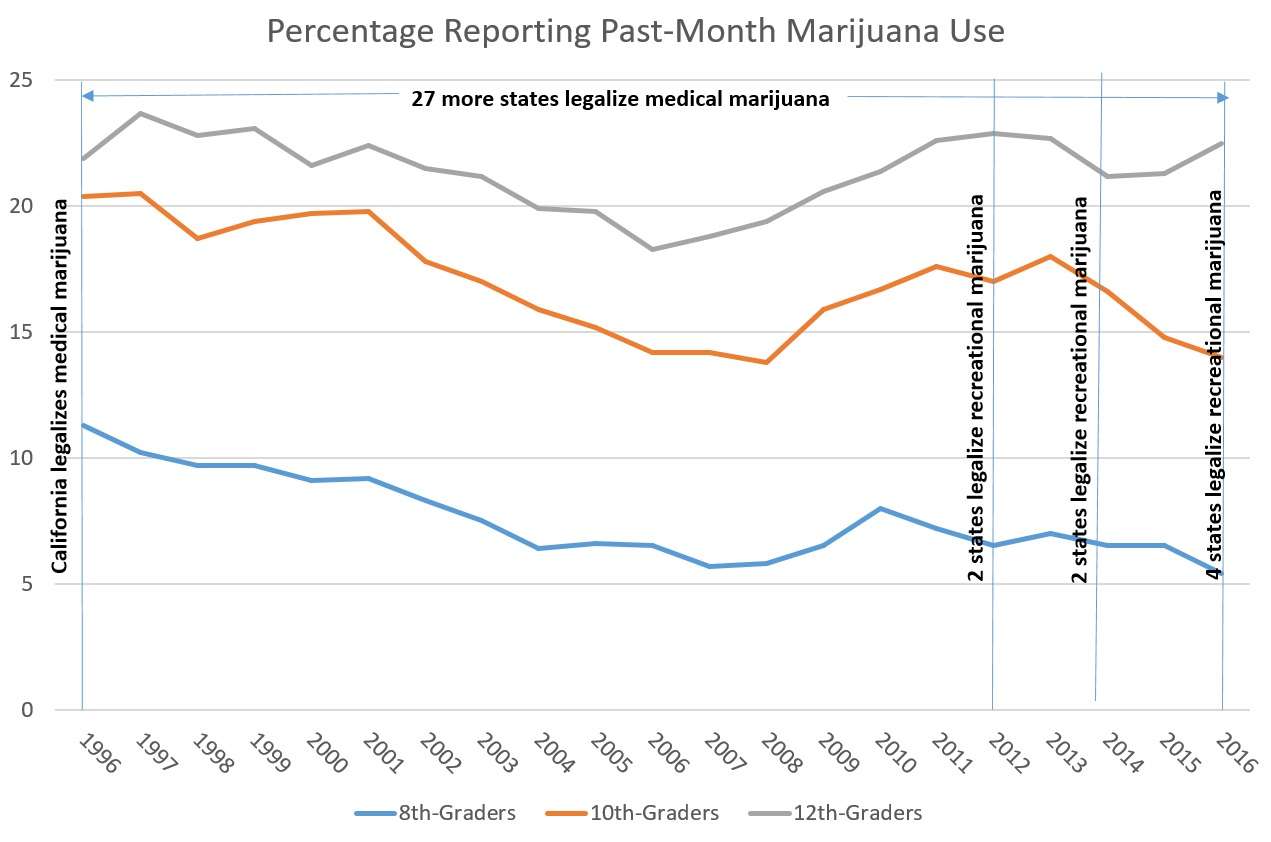Teenagers Dismay Prohibitionists by Consuming Less Cannabis
The latest survey data indicate that legalization has not driven a national surge in adolescent pot smoking.
At a Senate hearing last April, Jeff Sessions, Donald Trump's choice for attorney general, worried about the message that marijuana legalization sends to the youth of America. "I can't tell you how concerning it is for me, emotionally and personally, to see the possibility that we will reverse the progress that we've made," he said. "Colorado was one of the leading states that started the movement to suggest that marijuana is not dangerous. And we're going to find it, in my opinion, ripple through the entire American citizenry, and we're going to see more marijuana use." We have been hearing similar warnings from drug warriors for two decades. When teenagers see that states have legalized medical or recreational marijuana for adults, prohibitionists predicted, they will be more inclined to smoke pot. But as survey data released yesterday confirmed once again, there is no evidence that is happening.
According to the Monitoring the Future Study, marijuana use by eighth- and 10th-graders fell this year. It rose slightly among 12th-graders but was still less common than in 2012, the year Colorado and Washington became the first two states to legalize marijuana for recreational use, and about the same as in 2014, when two more states and the District of Columbia joined them. The 2016 legalization campaigns, four of which were successful, likewise did not seem to spur much new interest in pot among teenagers. Nor did the legalization of medical marijuana in 28 states, starting with California in 1996. This is not the pattern you would expect to see if loosening state marijuana laws encouraged underage consumption by improving the drug's reputation among teenagers:

"I don't have an explanation," said Nora Volkow, director of the National Institute on Drug Abuse, which sponsors the survey. "This is somewhat surprising. We had predicted based on the changes in legalization [and] culture in the U.S. as well as decreasing perceptions among teenagers that marijuana was harmful that [use] would go up. But it hasn't gone up."


Show Comments (45)